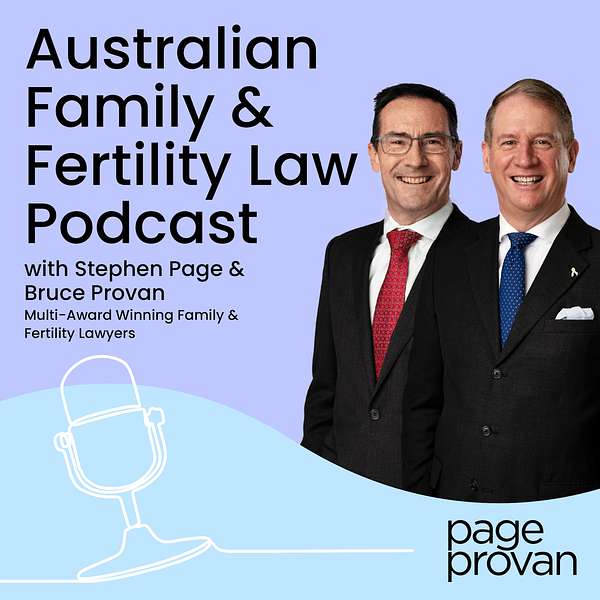
Australian Family and Fertility Law
Australian Family and Fertility Law
Top Fertility Expert Shares 5 Surprising Ways to Become a Parent
In this video, Award Winning Surrogacy Lawyer, Stephen Page discusses the 5 ways that you can become a parent, "legally."
Introduction
Becoming a parent is one of life’s most significant journeys, but it can happen in various ways beyond the typical route. Understanding the different pathways to parenthood can empower individuals and couples to explore their options thoroughly. Here are five ways to become a parent.
Natural Conception
The most common method of becoming a parent is through natural conception, which typically involves sexual intercourse. This traditional way results in a child being conceived and is often the first thought for those looking to start a family.
Assisted Reproductive Treatment
Another prominent avenue is through assisted reproductive treatments like in vitro fertilization (IVF). This process allows individuals or couples to conceive a child with medical intervention, utilizing either sperm or egg donation. Variants include sperm donation, egg donation, and embryo donation, all of which fall under the umbrella of assisted reproductive technology.
Adoption
Adoption is another way to become a parent and involves legally taking on the responsibility of a child. While it may not be as common in all regions, adoption remains a heartfelt option for many. In some cultures, traditional adoption practices exist, though they may not always be officially recognized. In Australia, for instance, there are specific regulations guiding adoption processes, particularly in Queensland for Torres Strait Islander peoples.
Traditional Child-Rearing Practices
Traditional child-rearing practices, although not legally recognized in many places, play a significant role in some communities. These practices often involve extended family members or community members stepping in to care for a child, creating a familial bond that may not always align with standard adoption.
Surrogacy
Finally, surrogacy is another path to parenthood, wherein a third party carries and delivers a baby for someone else. This method can be complex but offers an avenue for those who cannot conceive naturally or through assisted reproductive technology.
Conclusion
Each of these pathways to parenthood comes with its own unique complexities and emotional experiences. Understanding these options can help individuals and couples make informed decisions about their family-building journey.